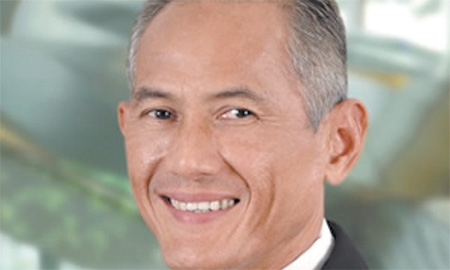The global economic crisis and volatile oil prices are posing significant challenges for the sector. Even with the focus on renewable energies and combating climate change, natural gas continues to be seen as an increasingly cleaner, more sustainable source of energy.
According to Datuk Dr Abdul Rahim Hashim, Malaysian Gas Association and International Gas Union (IGU) president, “With the right policies and proper governance, we can be a key player in the energy industry and […] fuel the growth energy development in the country, the region and ultimately to the world.” Ambitious words, but they also accurately reflect the facts.
Energy production in Malaysia has generally been based on its ample oil and natural gas resources. As for powering the country, 60 to 70 per cent of power generated in Malaysia is from gas, and state-owned oil and gas company Petronas contributes more than 40 per cent to Government revenues and almost half of Malaysia’s GDP.
As for powering the world, Malaysia is the second largest liquefied natural gas (LNG) producer worldwide and Petronas’s Bintulu Complex is one of the largest LNG facilities on the globe.
The country has a lot going for it: a long and successful track record as an oil and gas exporter, a extensive pipeline network, and a prime location in the Asia-Pacific region.
In fact, Malaysia is a hub for the trans-Asia gas pipeline and has connections to Singapore, Vietnam and Indonesia, with additional plans for future expansion.
Along those lines, Malaysia is open to sharing its excellent infrastructure with other market players, which, together with its ideal location, make it a prime candidate for foreign direct investment. Samsuddin bin Miskon, managing director and CEO of Petronas, says, “We have around 3,000 kilometres (1,864 miles) of pipelines that can transfer gas from offshore Malaysia. This means that there is potential for gas to come in for industry, and we are also working on new import facilities, which will be ready next year. When our LNG processes are ready in 2012, we will be opening up our gas infrastructure to third parties. It is currently being used solely by Petronas, but once the import facilities are set up, we will encourage others to bring in LNG.”
There is also an increasing focus in the industry on R&D, with significant efforts under way to enhance technology. Schlumberger Asia, a leading global supplier of technology and integrated project management services for the oil and gas industry, is a driving force in this area. According to its chairman, Jamal Ainul: “With Asian demand for oil and gas on a strong upward trend, the location of manufacturing and sustaining teams in the region enhances operational excellence and enables the efficient development of the solutions needed to match the region’s technological challenges.”
Another player in Malaysia with significant expertise in the oil and gas industry is domestic technology expert
Sapura Group. Its subsidiary SapuraCrest Petroleum Berhad is involved in offshore drilling, pipeline and facility construction, offshore marine engineering, and maintenance activities for the oil and gas and power industries. The group is currently one of the largest integrated oil and gas service providers in Malaysia.
Further evidence of the country’s importance in the global industry is the fact that it will be a first-time host of the World Gas Conference (WGC) in 2012, an event set to feature over 3,500 delegates, 250 international speakers, and 200 exhibitors.
A recent article about the event confirmed that “WGC 2012 has a unique opportunity to advance Malaysia’s profile as a leader in the gas industry, [with the event providing a] strategic meeting ground for major gas industry players and suppliers to showcase their latest technologies and products to industry decision-makers.”
According to Dr Abdul: “Although robust efforts to commercialise renewable energy sources are under way, fossil fuels (oil, gas and coal) will continue to be the backbone of the world energy mix in decades to come, supplementing 70 to 80 per cent of total global needs.” He also affirms Malaysia’s leading position is because of what it has in its own backyard.
Going forward, Malaysia is set to continue to play a major role in the growth of the world’s gas industry and in meeting future energy needs.

0 COMMENTS